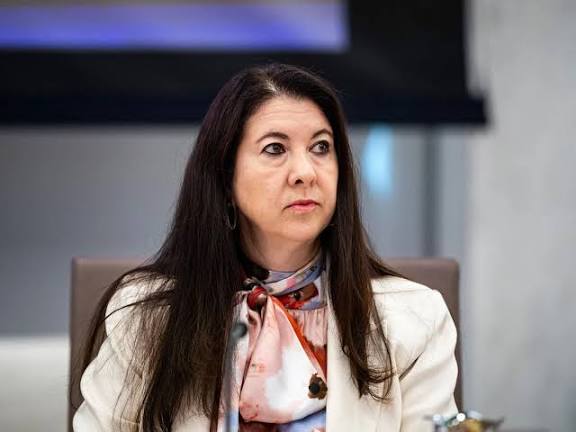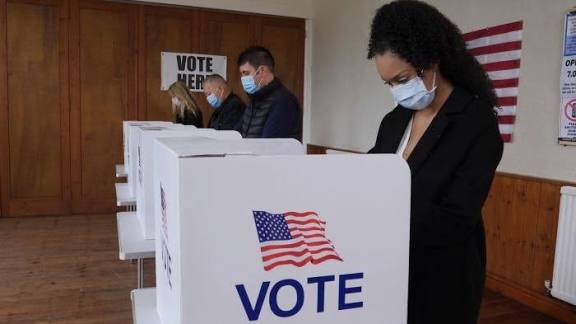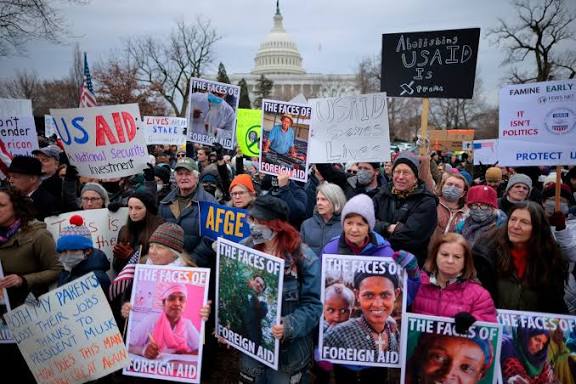Adriana kugler news: Husband,fed governor adriana mystery resignation,Trading Rules

Former Federal Reserve Governor Adriana Kugler violated ethics rules in stock trades. The transaction took place during the blackout period. Today we will discuss about Adriana kugler news: Husband,fed governor adriana mystery resignation,Trading Rules
Adriana kugler news: Husband,fed governor adriana mystery resignation,Trading Rules
Adriana D. Kugler — a respected economist, academic, and former U.S. Federal Reserve Governor — has become the center of one of the most significant ethics controversies in recent Federal Reserve history. Her abrupt resignation in August 2025, initially framed as a return to academia, has since been linked to a major investigation into violations of the Fed’s strict trading rules. Documents released months after her departure revealed that Kugler or her spouse had engaged in prohibited stock trading activities, raising serious questions about transparency, oversight, and potential conflicts of interest at the nation’s central bank.
This comprehensive article breaks down everything known so far: who Adriana Kugler is, why her resignation has been called “mysterious,” what role her husband allegedly played in the trades, and how the case exposes weaknesses in the Federal Reserve’s ethics and trading regulations.
Who Is Adriana Kugler?

Adriana Kugler is a highly accomplished economist with an extensive background in public policy, international development, and labor economics. Before joining the Federal Reserve Board of Governors, she served as:
A professor at Georgetown University’s McCourt School of Public Policy.
The U.S. Executive Director at the World Bank.
Chief economist at the U.S. Department of Labor from 2011 to 2013.
A researcher known for work on labor markets, youth unemployment, job training, and productivity.
Kugler holds a Ph.D. in Economics from the University of California, Berkeley and undergraduate degrees from McGill University.
In 2023, she was appointed as a Federal Reserve Governor, becoming the first Latina to serve on the Board. Her term, however, ended abruptly in 2025 — far earlier than expected.
The Sudden and “Mysterious” Resignation
On August 1, 2025, Adriana Kugler submitted her resignation from the Federal Reserve, effective August 8. Her official explanation was simple: she intended to return to Georgetown University as a professor.
Fed Chair Jerome Powell publicly praised her work, thanking her for her contributions. Nothing in the initial announcement hinted at scandals, investigations, or wrongdoing.
However, the timing of her resignation raised eyebrows:
She left months before her term was scheduled to end.
She resigned one day after skipping a key Federal Open Market Committee (FOMC) meeting.
She had recently requested — and was denied — a waiver to sell prohibited holdings.
Her final ethics disclosure was not certified, an unusual step signaling potential violations.
Only later would the full picture begin to emerge.
The Ethics Probe: What Actually Happened?
Several months after her resignation, documents from federal ethics agencies revealed that the departure came during an active investigation into multiple violations of the Federal Reserve’s trading rules.
1. Blackout Period Violations
Kugler or her spouse conducted trades during blackout periods — sensitive time windows around FOMC meetings when Fed officials are strictly prohibited from trading. These windows exist to prevent even the appearance of insider trading based on upcoming monetary policy decisions.
2. Prohibited Stock Ownership
Under the rules adopted by the Federal Reserve in 2022, senior officials and their spouses:
Cannot trade individual stocks.
Cannot hold non-diversified investments in individual companies.
Must divest any impermissible holdings promptly.
Kugler and her spouse held and traded several individual stocks, including:
Apple
Southwest Airlines
Caterpillar
Cava Group
Materialise NV
Palo Alto Networks
Some trades were large, including transactions in the high five- or six-figure range.
3. Lack of Disclosure and Certification
Her final financial disclosure form — required to certify she followed Fed ethics rules — was not certified. Non-certification indicates that ethics officials believed violations either occurred or required further investigation.
4. Referral to the Inspector General
The Fed’s ethics office escalated the matter by referring the case to the Office of the Inspector General, triggering a formal investigation. Such referrals are rare and indicate serious concerns.
Kugler’s Defense: Her Husband Made the Trades
Throughout the disclosures, Kugler consistently maintained that:
Many trades were made by her husband, not her.
She did not know about several of the transactions.
Her spouse had no intention of violating rules.
However, the Fed’s rules leave little room for this defense. Officials are responsible for their own and their immediate family’s financial activities. Ignorance is not considered an excuse.
The sheer number, scale, and timing of the trades made it difficult for investigators to accept that they were innocent oversights.
The Denied Waiver: A Key Turning Point
Weeks before her resignation, Kugler requested a special waiver from Chair Jerome Powell. She sought permission to trade or divest impermissible holdings during a restricted period.
Powell denied the waiver.
This denial is highly significant because:
It shows Kugler had known for some time her holdings violated rules.
The ethics office had likely warned her earlier.
The request being denied indicates the violation was serious, not a minor oversight.
Immediately after the waiver was denied, she skipped the next FOMC meeting and resigned the following day.
The sequence strongly suggests the resignation was directly tied to ethics pressures.
Political and Institutional Fallout
The revelation of Kugler’s ethics issues triggered wide public and political reaction.
1. Congressional Calls for Stronger Ethics Laws
Lawmakers — especially those critical of past Fed scandals — renewed calls for stricter ethics and transparency rules. The Kugler case is being used as evidence that:
Current rules are too weak,
Enforcement mechanisms are inconsistent,
Senior officials still find ways to bypass restrictions.
2. Concerns About Central Bank Independence
Her resignation allowed the administration in office at the time to appoint a new governor immediately. Critics worry that this shift could influence the ideological balance of the Board, potentially affecting:
Interest-rate decisions
Inflation policy
Long-term economic strategy
The appearance of a politically convenient vacancy added fuel to speculation.
3. Damage to the Fed’s Reputation
The Federal Reserve has struggled with a series of ethics scandals in recent years. Kugler’s case is particularly damaging because:
She was seen as a reform-oriented, respected economist.
The violations occurred after the Fed had already tightened its rules.
It raises concerns that even the improved framework fails to prevent conflicts of interest.
Public trust in central banking depends heavily on the perception of impartiality. Trading scandals undermine that trust.
Understanding the Fed’s Trading Rules
To fully understand this scandal, it’s important to recognize what the Fed’s rules require.
Why the Fed Has Strict Ethics Rules
Federal Reserve officials:
Possess highly sensitive information
Have early insight into interest-rate decisions
Can influence financial markets directly
Thus, trading restrictions exist to prevent personal financial gain from inside knowledge.
Core Elements of the Fed’s Ethics Rules
No individual stock trading.
Officials and their family members must avoid individual company stocks.No trades during blackout periods.
These periods occur around FOMC meetings.Mandatory disclosures.
All trades must be reported promptly.Certification by ethics officers.
Every governor’s financial disclosure must be certified annually.Pre-approval for divestment trades.
Even selling prohibited assets requires clearance.
Kugler’s violations appear to have crossed multiple categories simultaneously.
Was Her Resignation Truly Mysterious?
Yes — and no.
Why It Seemed Mysterious
When she resigned:
No one mentioned an investigation.
She framed it as a return to academia.
The Fed leadership issued cordial statements.
No documents were released.
This created an appearance of a normal, voluntary departure.
Why the Mystery Didn’t Last
The later disclosures reveal:
She was under active ethics review.
Her trading activities had triggered internal alarms.
She had sought an extraordinary waiver.
The waiver was denied.
A formal investigation referral had already been placed.
Once these details became public, the “mystery” became clear:
The resignation happened under pressure — likely to avoid a public scandal while still inside the institution.
Wider Lessons and Implications
The Adriana Kugler scandal highlights several broader issues.
1. Stronger Ethics Oversight Is Needed
The Fed’s rules, although tightened in 2022, still rely heavily on:
Personal honesty
Self-reporting
Manual ethics reviews
Internal waivers
The Kugler case shows how easy it still is for conflicts of interest to emerge.
2. Spousal Trading Must Be More Regulated
Many Fed officials use the defense that their spouses acted independently.
But this loophole allows:
Potential backdoor insider trading
A way to profit from policymaking families
Difficulty in enforcement
The rules may need to be rewritten to eliminate this ambiguity.
3. Market Trust Depends on Fed Integrity
If the public believes central bank decisions are influenced by personal financial interests, confidence in monetary policy could weaken. Scandals like this have long-lasting effects on institutional credibility.
4. Political Consequences Are Real
A Federal Reserve governor’s resignation creates an immediate vacancy.
Depending on the administration in power, replacing a governor can change the Board’s ideological balance, affecting:
Interest rates
Inflation goals
Financial regulation strategies
This makes ethics-related resignations politically significant.
Conclusion
The story of Adriana Kugler’s resignation is not simply about an academic returning to the classroom. It is a complex mix of ethics violations, prohibited stock trades, family financial mismanagement, and a breakdown of trust within one of the most powerful economic institutions in the world.
Her case demonstrates the challenges central banks face when trying to maintain transparency, integrity, and public confidence. As the Inspector General’s investigation continues, the fallout may prompt stricter rules, more aggressive oversight, and long-term changes to how financial conflicts of interest are handled within the Federal Reserve.
The controversy surrounding Adriana Kugler is likely to remain a significant chapter in the Fed’s ongoing efforts to reform its ethics system — and a cautionary tale for policymakers at the highest levels.
How useful was this post?
Click on a star to rate it!
Average rating 0 / 5. Vote count: 0
No votes so far! Be the first to rate this post.
About the Author
usa5911.com
Administrator
Hi, I’m Gurdeep Singh, a professional content writer from India with over 3 years of experience in the field. I specialize in covering U.S. politics, delivering timely and engaging content tailored specifically for an American audience. Along with my dedicated team, we track and report on all the latest political trends, news, and in-depth analysis shaping the United States today. Our goal is to provide clear, factual, and compelling content that keeps readers informed and engaged with the ever-changing political landscape.




